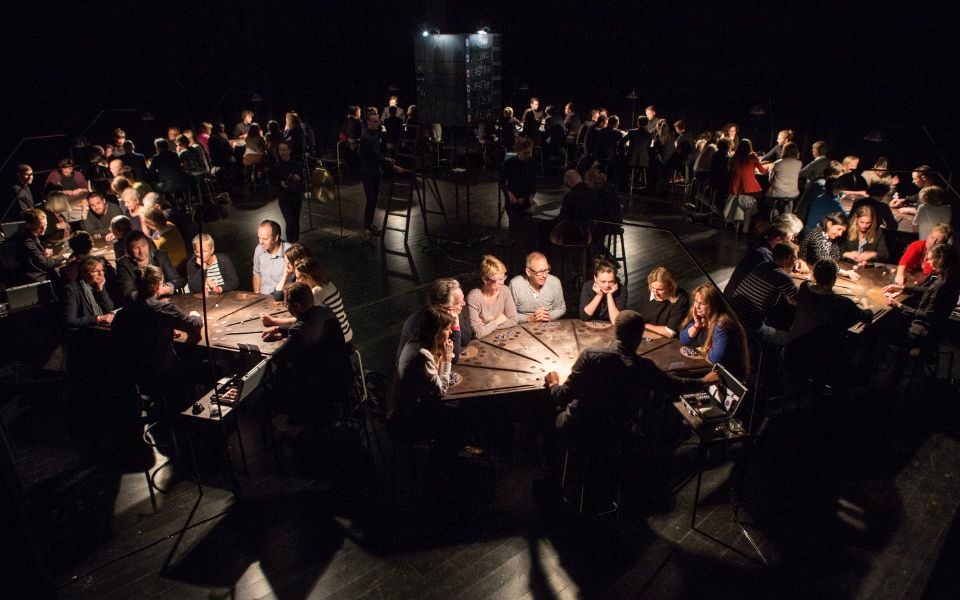Lies at the Almeida review: A thrilling exploration of the psychology behind the 2008 financial crash

Sitting through a play called Lies (or £¥€$, if the Anglicised version isn’t on-the-nose enough for you) about the excesses of the banking system sounds like the last way a City A.M. reader would want to spend an evening.
But this production by Belgian company Ontroerend Goed, part psychological experiment, part multi-faceted board-game, is far more nuanced than its title suggests.
The Almeida’s seats have been torn up and replaced with casino-style gaming tables, each representing a nation state. The eight “players” on each are the country’s banks, and they must all underpin their investments with real cash from their real wallets (mercifully repaid at the end of the evening).
Each table’s nameless croupier plays the part of the central bank, who explains that investments are made through a simple game of dice. Roll a three or higher to double your wager on commodities, for instance. Later, you can make riskier bets on services or technology. Eventually financial instruments bring the promise of huge gains or painful losses.
If your cash reserves run low, the central bank is always on hand to print more money or offer a loan, selling government bonds to neighbouring tables to keep the wheel spinning.
Short bursts of commentary follow each round, with shadowy figures ruminating on the state of the global market. But Lies’ great strength isn’t what it says, but the feelings it evokes. Roll a six and your dopamine receptors are tickled as the cash (and bonds and debt obligations) rolls in. Potential pitfalls – when does that loan need to be repaid? – are easily ignored when everyone appears to be winning.
The game’s complexity builds slowly, almost imperceptibly, yet there comes a point when you realise you no longer fully comprehend the intricacies of its overlapping systems.
By the latter stages, tables no longer operate independently, but are propped up by their neighbours; it only takes one to fail to expose everyone. And when it happens, you feel it, deep in your gut. It’s an ingenious piece of design, taking a simple premise and stretching it to its painful breaking point.
Lies opens just two weeks after the wonderful The Lehman Trilogy, which also explores the factors responsible for the events of 2008 (among many, many other things). But a more direct analogue for Lies is Adam McKay’s Oscar-winning film The Big Short, which similarly focuses on the countless minutia and collective bravado that pumped the market to bursting point.
To its credit, Lies is no polemic against capitalism or investment banking. Rather, it’s an insight into the hard-wired human psychology that allowed the events of 2008 to happen. It thrillingly demonstrates how regular people can get caught up in a shared fantasy that they can tame the untamable, conquer the unconquerable, thriving off their wins, rationalising their losses. The worst lies, at least in this terrifying game of life, are the ones we tell ourselves.
